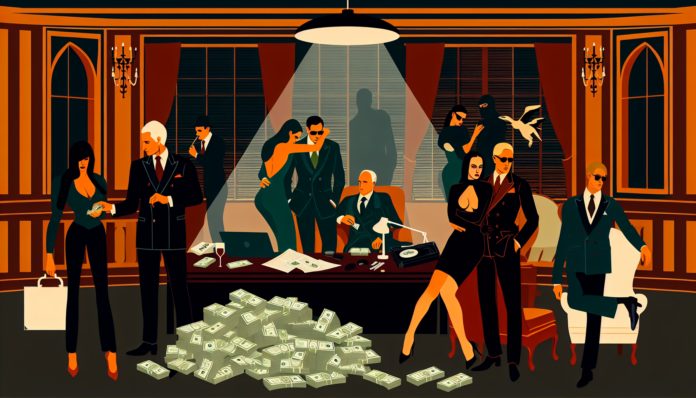Introduction
In 2017, the world was rocked by a scandal that would challenge societal norms and the reputation of its central figure, Kevin Spacey. A beloved actor known for his roles in The Usual Suspects and House of Cards, Spacey’s career took a downturn when multiple men accused him of sexual misconduct. During a period where conversations about consent and power dynamics were slowly gaining traction, the Spacey scandal exemplified the intense clash between celebrity culture and shifting societal attitudes towards sexuality and accountability.
The Scandal
The scandal erupted when actor Anthony Rapp stepped forward, alleging that Spacey made an unwanted advance toward him when Rapp was just 14 years old. Shortly after Rapp’s allegations surfaced, several others came forward with similar stories, detailing unwanted sexual advances and inappropriate behavior by Spacey over the years. The allegations painted a troubling picture of a man who, while respected in Hollywood, had leveraged his power and status to exploit others.
Spacey’s response was both controversial and puzzling: he issued a statement in which he did not directly address Rapp’s claims but rather came out as gay, seemingly attempting to deflect criticism. This sparked outrage, as it felt like a calculated move to shift the narrative away from his alleged predatory behavior.
Key events that unfolded included:
- Hollywood Reaction: Major networks and production companies quickly distanced themselves from Spacey, canceling projects and halting films he was involved in.
- Public Discourse: Social media erupted with discussions about consent, power dynamics, and the #MeToo movement, which had recently gained momentum.
- Legal Aftermath: Spacey faced several lawsuits and even criminal charges in various jurisdictions, which complicated his public persona further.
“Celebrities should be held to the same standards as everyone else,” noted one prominent actor on Twitter, echoing the sentiments of many outraged fans and advocates.
Moral and Cultural Analysis
The backlash against Spacey was swift and severe, reflecting an evolving societal understanding of sexual misconduct. In the early 2000s, a similar scandal involving a figure like Roman Polanski—who fled to France after pleading guilty to unlawful sexual intercourse with a minor—was treated with a degree of complicity by many in Hollywood. At that time, the focus often revolved around the artistic contributions of such figures, overshadowing their unethical behaviors.
Historically, many accusations against powerful men were met with skepticism or silence. The Spacey scandal marked a distinct departure from this pattern, as it showcased a cultural shift toward holding individuals accountable for their actions, rather than enabling them through silence or deflection.
How Would It Be Viewed Today?
Fast forward to today, the societal lens through which we view such scandals has sharpened considerably. The focus on consent, accountability, and the ramifications of power dynamics has transformed the conversation around sexual misconduct:
- Public Awareness: The similar outcry surrounding high-profile figures like Harvey Weinstein and Bill Cosby showed a growing intolerance for abuse and a newfound commitment to listening to victims.
- Media Scrutiny: Today, narratives centered on scandals are critically examined, with an emphasis on understanding the nuances of power imbalance.
- Ongoing Conversations: Discussions regarding mental health, therapy, and public accountability continue to evolve, emphasizing a need for understanding over condemnation.
While Spacey’s allegations opened a much-needed dialogue about misconduct, they also illuminated a critical facet of societal progress: the journey from silence to advocacy, showcasing how the moral compass of society has evolved in just a few years.

